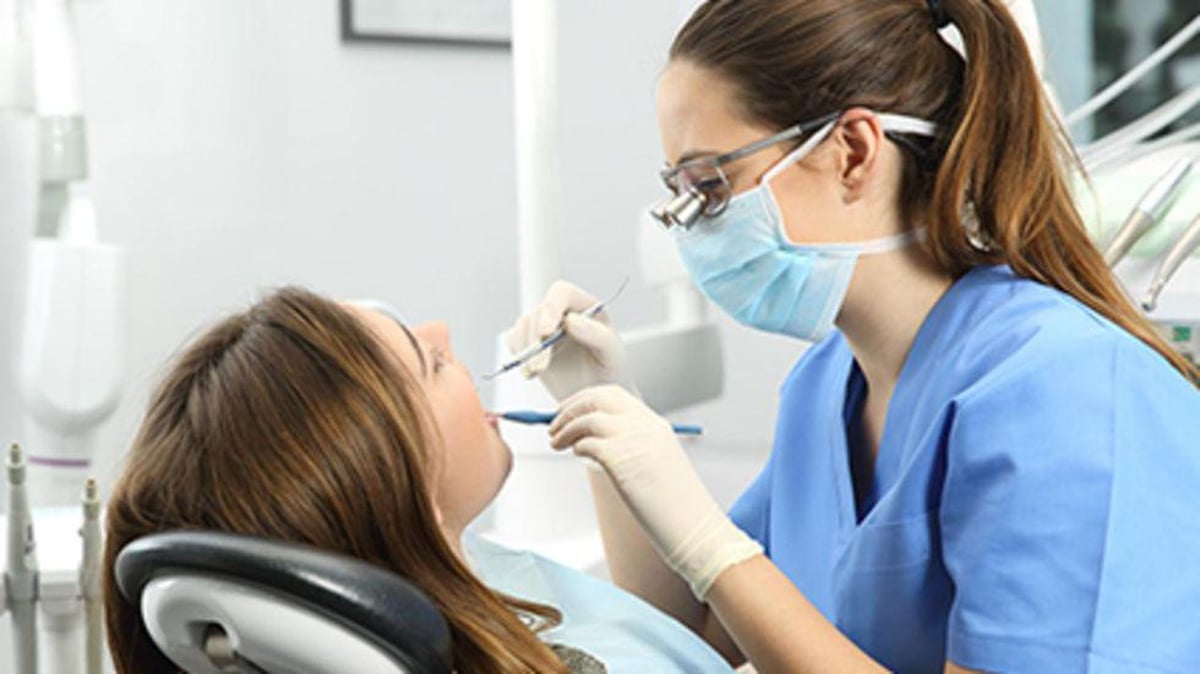Drills Key to Making Dental Appointments COVID-Safe

MONDAY, Feb. 7, 2022 (HealthDay News) -- The type of drill your dentist uses just might determine your chances of catching COVID-19 while in the chair.
So claims new research that suggests dentists can significantly improve patient safety during the pandemic by switching the type of drill they use.
British researchers used a harmless virus similar in size and structure to SARS-CoV-2, the coronavirus that causes COVID-19, to compare the aerosol spray patterns produced by conventional air-driven drills and newer electric drills. Reducing aerosol spray provides a safer environment for both patients and the dental team.
Using a dummy head and simulated saliva, the researchers found that the electric drill produced 99.98% less aerosol spread of the virus into the air, compared with the air drill.
When a dental suction tool was used with the electric drill, there was no detectable virus on surfaces or in air samples taken six to 10 minutes afterwards, the findings showed.
The researchers also found that changing from air to electric drills can significantly reduce the time needed between appointments to make dental spaces safe, potentially enabling dentists to see many more patients during the pandemic.
The study was published recently in the Journal of Dental Research.
"The issue for dentists during the coronavirus pandemic is that their routine work involves creating an aerosol spray in a confined space with an associated risk of airborne spread of COVID-19," said lead clinical author Brian Nattress, a professor in the University of Leeds' School of Dentistry.
"This is the first time the spread of a harmless COVID-19-like virus has been analyzed during routine drilling procedures," Nattress noted in a Leeds news release.
"If the spread of that aerosol spray can be reduced or eradicated, that has enormous, positive implications for how dentists can go about their daily business, not just during the coronavirus pandemic, but also during future virus outbreaks," according to Nattress.
Study co-author David Wood is director of research and innovation at Leeds' School of Dentistry. He said, "This robust scientific evidence addresses how the risks associated with the spread of the SARS-CoV-2 virus via dental drills can be successfully managed."
More information
The American Dental Association outlines what to expect when you visit your dentist during the COVID-19 pandemic.
SOURCE: University of Leeds, news release, Jan. 31, 2022
Related Posts
Socioeconomic Position at Age 30 Predicts Later Mental Health Diagnosis
THURSDAY, Feb. 9, 2023 (HealthDay News) -- Poor socioeconomic position (SEP) at...
Loss of Smell, Taste Less Likely With Newer COVID-19 Variants
WEDNESDAY, May 18, 2022 (HealthDay News) -- Loss of smell and taste are less...
AHA News: Is Turkey Healthy for You? Read This Before You Gobble Any
TUESDAY, Nov. 23, 2021 (American Heart Association News) -- Since before...
